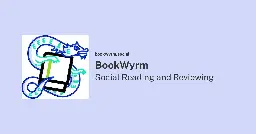Search
Jack: Into the Beanstalk - not as bad as the title would suggest

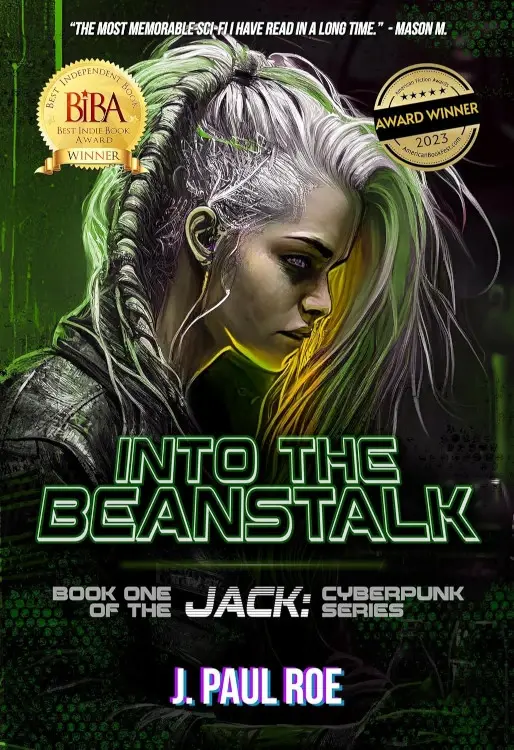
Let me get this out of the way first: this is a mindless pulp cyberpunk novel. It isn't high art. But it also isn't as bad as I would expect a book titled "Jack: Into the Beanstalk" to be. This isn't a bland re-telling of Jack And The Beanstalk with some human augmentations slapped on top. It's primarily a cyberpunk world first and any references to the fairy tale feel more like easter eggs than core story elements. So in that way, I was pleasantly surprised. With that said, this post is more about me trying to keep this community alive than a strong recommendation. It's a fun mindless story, not a "must read".
Both Astro Boy and Battle Angel Alita have the concept of a rich city in the clouds above the poor working class living on the ground. Even the Deus Ex reboot had Hengsha as a city on top of another city. So when this book has a rich city being held up above the poor city, I see that more as a cyberpunk trope than a "castle in the clouds" from the fairy tale. But maybe I'm being too generous. Anyway, the story is about a girl (named Jack) who has cybernetic limbs. She has a neurological implant in her spine which helps control these limbs. At the beginning of the story, she's doing odd jobs for a gang in the hopes of paying off the debt she incurred when purchasing the limbs. The implant in her spine gets damaged and suddenly she can see a glowing green line reaching from the ground to the rich city above. That green line is The Beanstalk. Her goal is to figure out why only she can see it and what exactly it is. No magic beans, no giants in the sky, nothing else that I would consider a reference to the fairy tale.
In the process of trying to figure out what The Beanstalk is, she joins up with a group of freedom fighters. And this is really my main complaint with the story. This may be a nuance of the cyberpunk genre that only I care about, but I don't think cyberpunk stories should have rebellions. I'm good with a group of mercenaries teaming up to take down a megacorp, but I don't want a group of rebels attempting to make systemic change. I think an aspect of the cyberpunk genre is in trying to find your place in the world, not trying to change it. But that really is just a nitpick regarding my own enjoyment of the story; and if that's the worst I can come up with, it's not bad. The characters all have distinct personalities, the world is fleshed-out, the story is good; it's a fun romp.
There are two books in the series so far and both are less than 300 pages. Both end on a cliffhanger though. I jumped right into book 2 to see the resolution of the first book's cliffhanger and now I'm left with another cliffhanger waiting for book 3. Also, I'm not a huge fan of where the story went in book 2. It's introducing too much "magic" for my taste. The book pretends it's based on quantum computing but as far as the world-building is concerned, it's magic. There's a lot of "oh, I guess she can do that now" in the second book. And while you might argue it's stupid for me to complain about magic in a re-telling of a fairy tale, it really has not felt like a fantasy or fairy tale at any other point in the story so it's pretty jarring to me.
So as I said before, overall, a fun pulp cyberpunk novel but mostly me showing this community is still active.
Cyberpunk City: The Machine Killer

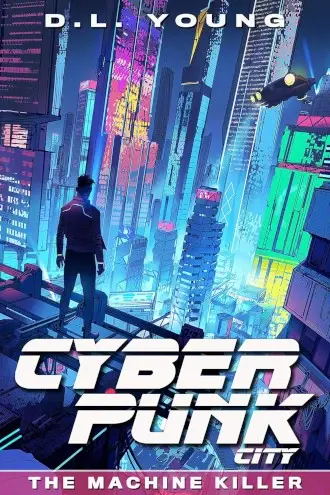
Amazon has been trying to recommend this book to me for awhile but I've always ignored it. My main issue is the title of the book, Cyberpunk City. That's so generic the author might as well have called it "My Cyberpunk Story". And while the cover art looks great, it's also your generic "person looking out over a cyberpunk city" motif, which is everywhere. So neither the title nor cover gave me any clues as to what this book is about, other than a generic cyberpunk cash-grab.
But, I happened to stumble upon a review of this book outside of amazon and I was intrigued. So I gave it a try. And I loved it. Figures, amazon was right all along.
While this book is full of your standard cyberpunk tropes, the author fits everything together so well it doesn't feel forced. Of course, cyberpunk tropes are what I want from a cyberpunk story, it's just that usually if the author's only goal is to write "a cyberpunk story" then it turns out bland. And that isn't the case here.
So yes, this book is about a hacker getting a crew together for a heist. There's your standard megacorps, AIs, black market dealings, cyberspace, cybernetic augmentations; it checks all the boxes. But the writing is good and I enjoyed myself. Honestly, now that I've read it, the only downside is it's only 260 pages long. That's pretty short for a heist story, which means most of the planning actually goes off without a hitch. There aren't constant distractions and side-quests the characters have to resolve before getting back on track. That doesn't mean the heist is entirely what it seems, though...
There are 5 books in the series, and each book is less than 300 pages. I enjoyed the first book so much I immediately bought the second. So far the second book's plot isn't as interesting, but the writing is still good and I'm still enjoying myself. In the end, that's all I really want.
Cyberpunk novels with trans characters

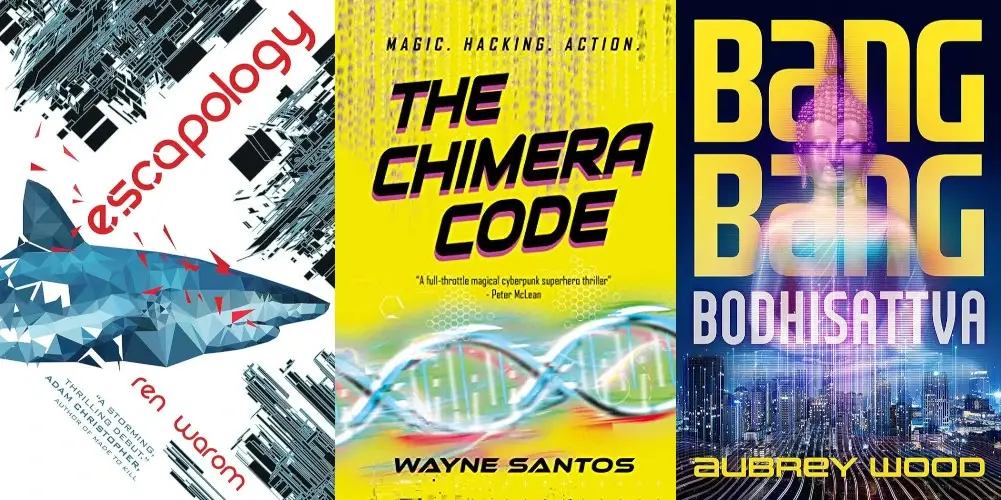
I read a lot of random cyberpunk novels from the kindle store and I'm always on the lookout for more. Cyberpunk novels are annoyingly difficult to find since the "cyberpunk" category on amazon is nothing but LitRPG, but that's a different rant altogether.
Anyway, I don't actively try to find trans characters in literature (I'm not trans) but I don't avoid books that have trans characters. I figure trans characters actually fit pretty well into cyberpunk universes. So for anyone who is interested in reading cyberpunk stories with trans characters, here are the ones I've read:
Escapology by Ren Warom - The main character is trans but is post-transition so the fact that he's trans isn't even mentioned until ~80% into the book. And it's really only revealed so the villain can make trans-based insults about the main character just to get him riled up. Given that the character is post-transition, I liked the fact that being trans didn't define who he was, it was just something from his past that he didn't really think about anymore. Of course, this also means the reveal of being trans almost felt tacked-on and an after-thought. But in the sequel, Virology, everyone's cyberspace avatars are visible in the real world and the main character has a theory that being trans affected how his avatar behaves. So being trans does eventually have an effect and doesn't feel tacked-on anymore.
The Chimera Code by Wayne Santos - This novel is about a mercenary crew where each person has their role (the leader, the hacker, the muscle, etc.). Their hacker dies so they need to recruit a new one (they even load up the old hacker's consciousness like Dixie Flatline to train the new hacker, so that's fun). Anyway, the new hacker they find is non-binary. This is handled pretty well where every time a new character meets this hacker they ask for the hacker's pronouns. The hacker tells them, and they move on with the story. So the hacker being non-binary is handled throughout the book but it's never a main theme of the story. The plot continues to drive forward regardless of the hacker's gender.
Bang Bang Bodhisattva by Aubrey Wood - This novel is about two characters trying to solve a murder mystery. One acts like he's a hard-boiled detective in a film noir while the other is trans and mid-transition. Now, given that the trans character is mid-transition I'm sure this makes sense, but being trans is a constant topic of discussion. It's like having a character who's vegan constantly telling you they're vegan. Again, I'm not trans, so I don't doubt that someone who is mid-transition constantly has it on their mind. But as a reader, yeah, I get it, she's trans. She's also pansexual and in a polyamorous relationship. I feel like this is more of the focus of the story than the murder mystery. I do like that the author changes writing styles depending on which character is the POV of the chapter. So the detective character always has short, terse sentences while the trans character has more free-flowing sentences. But this is the only novel in the list where I went "ok, this novel isn't meant for me." It feels more like a novel for trans people than just including trans people.
And that's it. Those are the cyberpunk novels I've read with trans characters. I find it interesting how it spans from "almost feels like an after-thought" to "handled, and not a factor" to "ok, I get it, stop talking about it". Honestly, I'm not sure what the "right" way is to handle trans characters so I figure it's good to cover this whole spectrum.
Thin Air - a cyberpunk novel for fans of the Takeshi Kovacs (Altered Carbon) series

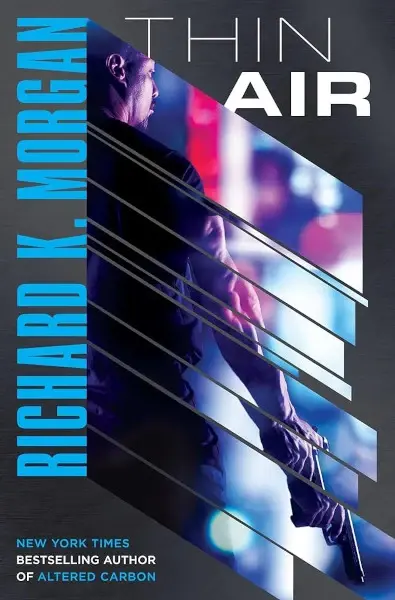
Thin Air feels like a Takeshi Kovacs knock-off but given that it's written by the same author, I guess that's ok. Just like Altered Carbon, Thin Air is about a ridiculously overpowered ex-soldier trying to solve a crime in a cyberpunk city and ends up digging deeper and deeper into unraveling a conspiracy. But this time, it takes place on Mars.
To be fair, this is a totally different universe than the Takeshi Kovacs series and has its own unique new technologies. It actually takes place in the same universe as another of Morgan's books, Thirteen, but Thirteen takes place on Earth and Thin Air takes place on Mars so the only overlap is in the names of some governemnt organizations. But if you enjoyed Altered Carbon, I think you'll enjoy Thin Air. They both have a similar sci-fi hard-boiled detective noir feel.
Underdog: Hackers of Artem - the closest I'll get to reading LitRPG

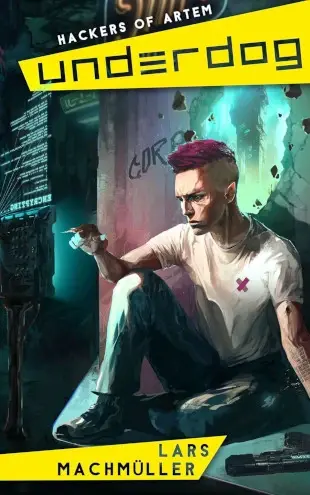
I dislike LitRPG as a genre. I won't stop anyone from reading it, but I personally think it's a lazy cop-out to world-building. I tried reading one that started talking about the character's mana points and putting items in their inventory (when the character wasn't inside a video game) and I immediately put it down. Also, I'm pretty bitter about the fact that the entire 'cyberpunk' section of the Kindle store is nothing but LitRPG. I don't consider LitRPG to be cyberpunk-by-default and it bothers me that I can't actually find cyberpunk novels because of all the LitRPG to wade through.
But, I'm a sucker for cyberpunk stories with hackers and, as I mentioned, I struggle to find new cyberpunk novels in the Kindle store as it is. So I took a chance with Underdog: Hackers of Artem.
As far as LitRPG goes, it doesn't stray too far into that genre. Any time a character gets a new augmentation, the book shows me their updated character sheet as if they were in a TTRPG. I don't care how many points are now allocated to the character's dexterity rating so I would just skip over those character sheets. And honestly, that was really the only indicator this was a LitRPG. Nothing else in the plot/story/world-building felt like LitRPG so it didn't really bother me.
As for the story, it's about a group of high-tech low-life friends who decide to work together to start a gang. They get in over their head, get attention from bigger gangs, and we're off and running.
Overall, I liked it. Each member of the gang has a role (the leader, the muscle, the hacker) and the main POV follows the hacker, which is what I wanted. My only real complaint is that the book is 740 pages long and once I reached about 70% into the book it really started to feel like I was approaching the end. They resolved the main conflict, there was a bit of a time jump, and a nice epilogue showing where each character ended up. I was starting to think the remaining 30% of the book would be like an appendix, or glossary, or, I don't know, rules to play in this world as a TTRPG or something. But no, after that resolution and epilogue there was an entirely new conflict with new antagonists and new struggles for the characters to face. It felt like the last 30% should've been book 2 in the series, or an exclusive ebook or something. It was strange. That second story wasn't bad, it was just odd to include it in the first book. Especially when the book is over 700 pages; the author didn't exactly need to pad the length.
One thing that's kind of neat about this book is a group of authors got together and decided to each write their own story within Artem, the city where this takes place. So one author might write a story about an ogre living as a weapons dealer in Artem and another author can have their characters buy weapons from that ogre. It's a nice little connected world for readers of the series without feeling like required reading (kinda like the Cosmere). Although, as far as I can tell, there's no website or grouping in the Kindle store to help you find the other connected books. I think there's just the Hackers of Artem, Pilots of Artem, and Artem Underworld series but you'd think if these authors wanted you to find more about their inter-connected world they'd... post that somewhere online or something. It's just weird that if I was a huge fan and desperately wanted to learn more, I'm not sure where I'd go.
But anyway, aside from all the other Artem books I could read, I enjoyed Hackers of Artem.
What Shadowrun novels would you recommend reading?
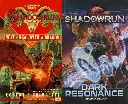
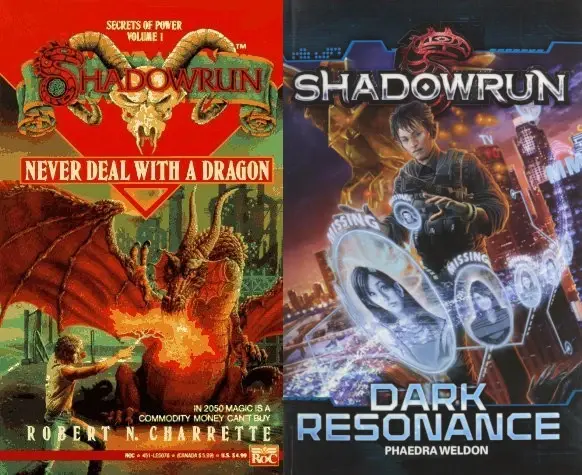
I'm tired of reading books that are somewhat cyberpunk or kinda cyberpunk if you squint your eyes just right. I'm in the mood for something that's more unapologetically cyberpunk. So what Shadowrun novels are worth reading?
I'm a total beginner when it comes to Shadowrun novels and there are way too many to pick one on my own. I picked Dark Resonance at random since it involved a technomancer and I really enjoyed that one. But then I tried Never Deal With a Dragon because it seemed the most well-known and I just found it boring. I don't think the issue was with the book's age, I think I just prefer more Matrix-heavy stories (with hacking and everything).
So has anyone here read a bunch of these Shadowrun novels? Are there any you would recommend? I know I'm not looking at high art here, I want a fun novel with hacking.
Recommendation: The Petrovitch Trilogy
Petrovitch Trilogy by Simon Morden, 2013, Orbit edition, in English
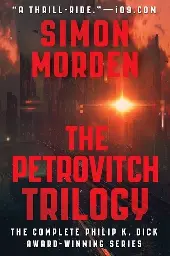
These books (the first three, at least, skip the bonus fourth one) are a lot of fun. I come back to them now and then when I want a comfortable read and I’m always surprised by how good they are.
The trilogy is one of those larger-than-life, everything-including-the-kitchen-sink sort of cyberpunk stories that somehow manages to Gish Gallop right past its sillier parts as it careens through some absolutely great intrigue and action. Its perhaps not as intentionally silly as Snowcrash, but I think they’re somewhat in the same neighborhood and I’d feel comfortable recommending them to a similar crowd.
Its got just about all the big elements at one time or another – a surveillance state, yakuza/corporate conglomerations complete with company ninjas, a rogue artificial intelligence, nuclear terrorism, soviet-inspired organized crime, armed nuns, CIA assassins, an army of self-driving cars, a bunch of hacking. As it goes on, it does become clear that governments/states still play a fairly significant role in this setting, certainly still larger than corporations, but they do some cool stuff with it, especially with how things have changed in this postapocalyptic world.
One thing to say for them, status quo isn’t really a thing in the books. The Metrozone setting changes pretty drastically throughout the series from a fairly standard cyberpunk London, to a warzone under siege, to a rebuilding independent state, but it always fits, has a wonderful sense of place, and I don’t think it loses its qualification as cyberpunk just because some of the neon lights stop working partway through.
The individual characters and the larger organizations tend to be painted in pretty broad-strokes sometimes veering into being caricatures and yet they’re legitimately loveable, easy to remember, and you get a good sense of who they are immediately. Looking back on three books I read in two days, the characters are what most stand out to me, and in a good way. The protagonist has some Mary Sue traits – I think they feel earned enough to give them a pass, some readers may feel otherwise. I do appreciate his growth and arc throughout the books.
(The writer/characters sometimes use some memes which aren’t super fresh here around the same year as the book is set.)
The one place where it perhaps edges away from cyberpunk is in the themes of hope. Throughout the series the main characters strive for and make real change in the world. There’s a sense that there’s still a messy, winding path towards utopia, that everything they need is there if only they can arrange it all just right, and keep society from imploding in the meanwhile. They’re not resigned, giving up, or accepting of the fucked up world as it stands. They’re not just trying to make their way or get by. In this one way, it feels almost closer to solarpunk than cyberpunk with its noir themes of apathy.
I'm not sure if all those qualifiers wreck the case I'm trying to make - these books are interesting and most of all they're fun, and how they do that, I think, is mostly in the delivery. All in all, I’d definitely recommend them.
Foundryside is a cyberpunk adventure wrapped in an epic fantasy novel
A novel about security and the ethics of technology, wrapped up in an exciting thriller
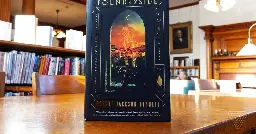
This is an old article but it explains Foundryside better than I could. It's a fairly standard fantasy setting with its own unique form of magic, and yet the story includes multiple cyberpunk tropes.
The article was written before the rest of the trilogy was released. I've read the trilogy and unfortunately, I'd only consider the first book to be cyberpunk. The series goes pretty far off the deep end to the point that the third book is about (I'm trying to use spoiler tags here):
spoiler
two hive-minds battling for control of humanity. All the protagonists are part of one hive-mind and are trying to stop the evil hive-mind. The two hive-minds aren't even present in book 2 so this was a pretty drastic departure from the rest of the series.
Jeff Noon's Vurt Series

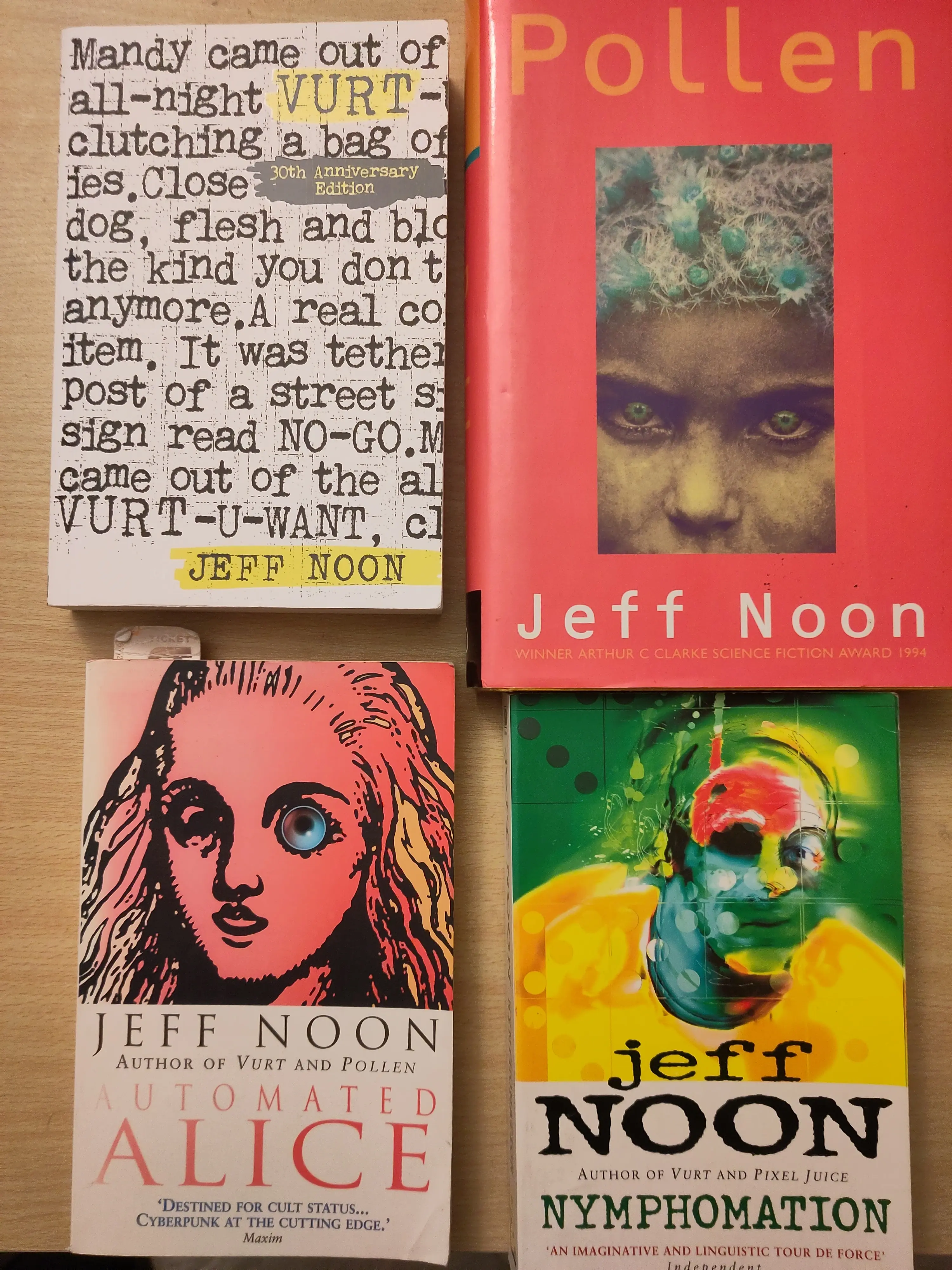
Neuromancer meets Alice in Wonderland, set in Manchester, UK.
Ive read Vurt and Pollen they are both great! About to start Automated Alice now and I am completely invested in the world Noon has created. Highly reccommend these, I dont think books 2-4 aren't currently in print so you might have to look around, but Vurt can be picked up pretty easily :)
> Destined for cult status, cyberpunk at the cutting edge.
Proto(?)cyberpunk Book Recommendation – Frontera by Lewis Shiner
I think this one is a pretty safe recommendation. I found it on a list of protocyberpunk stories a few years ago, and it looks like it shows up on similar lists fairly often, but I think it better qualifies just as early cyberpunk. It was published a month after Neuromancer, and Shiner thanks Gibson and Sterling for their help in the author’s note at the end. The setting, though distinct, feels very similar to the Sprawl books. It has not just the usual elements (a dying world with megacorporations ruling over the ruins of nations and governments as it all slowly collapses into disrepair and apathy, corporate soldiers and a chaotic war with ever-changing alliances where the killing was done more for boardroom dealings thousands of miles away, stolen wetware, heck even mirrored sunglasses, but it also has a lot of the same feel, the vivid descriptions, and a similar kind of dreamlike tone in places. I’d say Frontera somehow feels a little less steeped in the 1980s, and might be missing some stuff like AI, but if you like Gibson’s sprawl books, I think it’s about as close as you can get in terms of tone and feel.
So what’s it about? When things got bad and the governments collapsed, Earth abandoned the colonies on Mars. The corporation that ended up with NASA’s property on the ground and in orbit decides to finance a sketchy trip to mars using old equipment on a rushed timetable. Their reasons are kept secret even to most of the crew but even the back of the book will tell you the colonists are still alive out there, and they have something multiple corporations, including the ones who obtained the remnants of the soviet space program, want very badly.
Overall I quite like it, I think it fits nicely into the early days of cyberpunk, and it’s a fun story. I’m not super into the science of colonizing Mars, but I suspect some stuff has been figured out since the book was written. Still, it’s a great story, and I very much recommend it.
Protocyberpunk recommendation: The Space Merchants
In this classic send-up of American commercialism, a near-future earth is resource-depleted but callously ruled by advertising, splitting society between all-powerful ad agencies & exploited consumers. Mitchell Courtenay is a glib ad-exec who has just landed the assignment of a lifetime: enticin...
A few weeks before [email protected] vanished, I'd started posting some recommendations for protocyberpunk stories I'd enjoyed:
> I have a kind of specific fascination for proto-cyberpunk, generally stories that preceded the cyberpunk genre's start and have most of the elements but aren't quite there for one reason or another. I think it's fascinating to see how these things form, to try to find strands of DNA through fiction. Writers, sometimes decades earlier, voicing the same complaints, identifying the same problems I associate specifically with cyberpunk. > > The first one I thought I'd mention is a pretty safe bet: Frederik Pohl and C M. Kornbluth's The Space Merchants > > Written in 1952, this book has everything but the 1980s feel of a cyberpunk story: Megacities, corporate-states, corporate espionage, addiction-based-marketing, subscription-based-police, corporate citizenship in layers right down to indentured servitude, ecological collapse and a society that doesn't care. Even the visuals of layered, overcrowded, continent-spanning cities. > > But it feels like a 1950s science fiction story. It's great; very slick and steeped in the language of marketing. That works really well for it. But it doesn't feel like a cyberpunk story. > > I think that's part of the reason I find looking at these precursor stories so fascinating. Cyberpunk discussions often fold in on 'is this even cyberpunk?' and it can be really interesting to see something that has so many of the elements but is still something else from the start. > > Obviously these are all just my opinions, and I'd love to hear anyone else's on this book. > > Oh, one last opinion: If you're going to get a paperback, get the 1976 version, it looks great.
I've got a few of these I'd like to share, one more repost then we'll be into new old stuff. And if you have any protocyberpunk stories you'd recommend, I'd love to hear about them!
Cross-posted from: https://slrpnk.net/post/1225991 where I guess federation has preserved ghosts of the old instance.
Cyberpunk / Tech Noir Book Recommendation - The Other Kind of Life
THE THING THEY SAID COULDN'T HAPPEN, HAPPENED. Fresh out of jail, Max finds himself drawn into the mystery of what's gone wrong with the robots in his city. He's forced to rely on the help of Jennifer/Andrew, a body hopping robot driven to solve the case before her product line is recalled. They n...
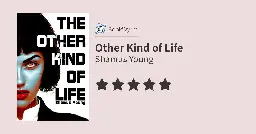
Another post I made back on [email protected] and am cross-posting from:https://slrpnk.net/post/963170
I promise I'll write up some new posts soon - but I'd like to resume my weeklyish weird/less-known book recommendations and I'd like that to include these first posts. Hope that's okay.
> I'm new to this community but I know we're still trying to work out the kind of content we want here. I really like discussions of cyberpunk settings, technologies, and their implications so I thought I'd submit my recommendation for a(n unfortunately less-well-known) story that has a lot of that. (I've got a few other recommendations if anyone wants to hear them.) > > I'm biased here because I'm already a fan of the author, who passed away last year, but it's really, really good and I wanted to recommend it. > > The Other Kind of Life is a cyberpunk noir detective story. It's thoughtful, well-built, and it never cheats the audience out of seeing how the protagonist pulls something off. The story and setting are cohesive, take no shortcuts, and build a very distinct world. > > The elevator pitch about a con artist solving robot murders sounds pretty trite in summary, so I'll give you the cool parts: > > 1: It's set in a custom world, fantasy style, with no connection to our world, which gives the author a lot of freedom and neatly exposed how accustomed I am to seeing this in fantasy books with the slightest hint of magic, and how much it throws me when a hard scifi story exists in the same kind of place. > > 2: Everything about the AIs carefully considers how they would develop, rather than just writing mechanical humans. They're wonderful and alien in small, interesting ways. And the book is saturated with conversations about them, their drives and design challenges. It feels like a successor to Free Radical, one of his earliest books, but more polished. >
[Future voice]: I wish Young had lived long enough to see machine learning AI really take off, I'd love to see what he thought of it, and how it influenced his future work. Also, just, like, in general, because he seemed like a really good dude.
> 3: This book takes no shortcuts. It shows you how the protagonist talks his way past people, plans his heists, and even how he finds and maintains his contacts. (Transmet for example had a habit of letting Spider summon up past contacts whenever he needed a lead, before burning them, making me wonder how he ever made those connections. It worked there, but this stood out in contrast.) > I love stories about characters who are smarter than me, and this one shows him being smart. Every step of the investigation feels earned. As trite as the buddy-cop-robot-murder-investigation premise feels... for me, this might be The buddy-cop-robot-murder-investigation book. > > Bonus stuff: There's a DM's fascination with how things got the way they are in the setting, from infrastructure to bureaucracy, to technology, to politics. An analyst's perspective that informs pretty much everything else. Young has a real knack for making careful analyses of situations and emotional states almost absurdly engaging, and he has a focus on workable AI designs that I really enjoy. His writing voice shows through in places in the novel's narration and dialogue, but it has the effect of making the characters seem more thoughtful and intelligent than you often get with this genre so I don't mind it. There's not much hacking in this one, which is a shame because he does it well elsewhere, but what's here is solid and believable, and the social engineering probably make up for whatever's missing. I'm probably overselling it, but if you enjoy scifi, I'd say it's worth it for the AIs and the world at the least.
Archangel Protocol - Cyberpunk + Christianity

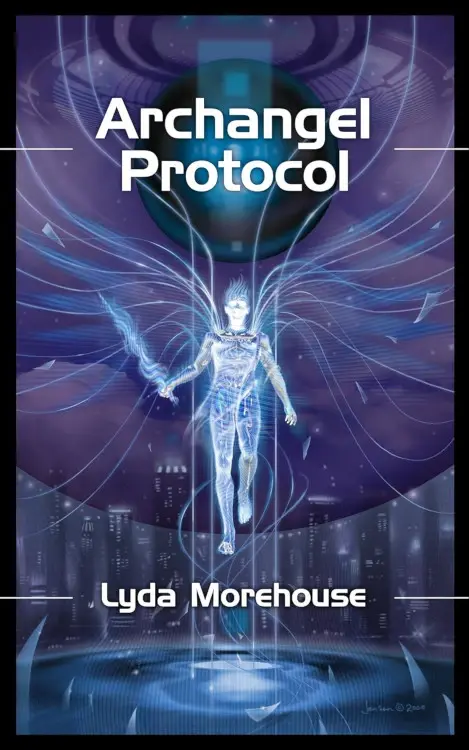
Archangel Protocol is about a cyberpunk world where everyone has ubiquitous access to cyberspace. And there are reports of people seeing angels in cyberspace. The main character is an ex-police officer who has lost her access to cyberspace and doesn't believe in these angel sightings. But then the Archangel Michael knocks on her door...
I'm not going to pretend this is high art or an interesting philosophical take on Christianity. It's basically a pulp cyberpunk novel. But it is definitely cyberpunk, with cyberspace and hackers and everything.
Also, usually when religion is included in a cyberpunk story, it's more of a cynical view (like The Preacher in Johnny Mnemonic). This novel doesn't go in that direction. It's just a cyberpunk world where all of Christian mythology turns out to be real, with various angels and demons. And for that, I'll give it points for originality. I'm not sure if anyone here would be interested in something like that but I figured I'd post it just to see.
There are 4 books in the series, but I only read the first one.
How do you find new cyberpunk books to read?
If you go to the Amazon kindle store and look at the Cyberpunk category, you'll find nothing but LitRPG. And while I have nothing against LitRPG as a genre, it isn't cyberpunk. And it's making it impossible for me to actually find new cyberpunk books.
So where do you go to find new cyberpunk books to read? Note that I'm not asking for a list of recommendations for cyberpunk books, I'm asking how you learn about or find new cyberpunk books. Do you have some clever trick for navigating the kindle store? Or is there a better website for finding new books? I know the kindle store has plenty of cyberpunk books, I just don't have a good way to find them. Right now, all I can do is find a book I've already read and check the Customers Also Enjoyed section in the hopes that it'll point me somewhere new.
Do you have any tricks that can help me out?
The original Hardwired cover is so much better than the reprint
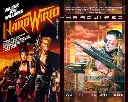
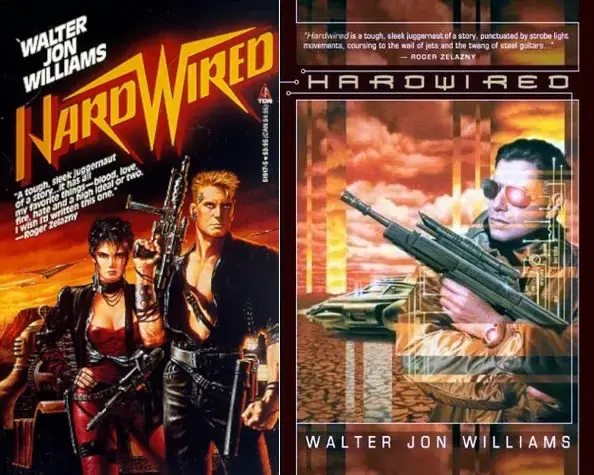
Hardwired (1986) by Walter Jon Williams is a classic cyberpunk novel. It hits all the themes of cyberpunk while also taking place in the wasteland, rather than your standard cyberpunk setting of an overgrown city.
I feel like the original cover (left) totally captures what this book is. It's 80s, it's cyberpunk, it's in the wasteland. You might say it's cheesy now, but I bet It's a good visual representation of what the author was thinking.
Now look at the reprint (right) from 2006. That's just awful. I mean, sure, he's in the wasteland, but that just looks like a cheap photoshop job. Look at those sunglasses, is that a robot eye or a lens flare? What's with his puffy jacket? Ugh, I'm just so annoyed by it. Especially because the book is good, and I highly recommend it. But if you saw that cover on the right at a store, you definitely wouldn't think it was a cyberpunk classic from the 80s.
Speaking of which, check out the cover for the audiobook: !
I'm not sure which is worse, the 2006 re-print or this audiobook cover. It's such a shame what they're doing to this book with these lazy covers.
Anyway, I recommend Hardwired for any cyberpunk fans who haven't read it. I just wanted to also complain about how lazy the covers are in all the reprints.
